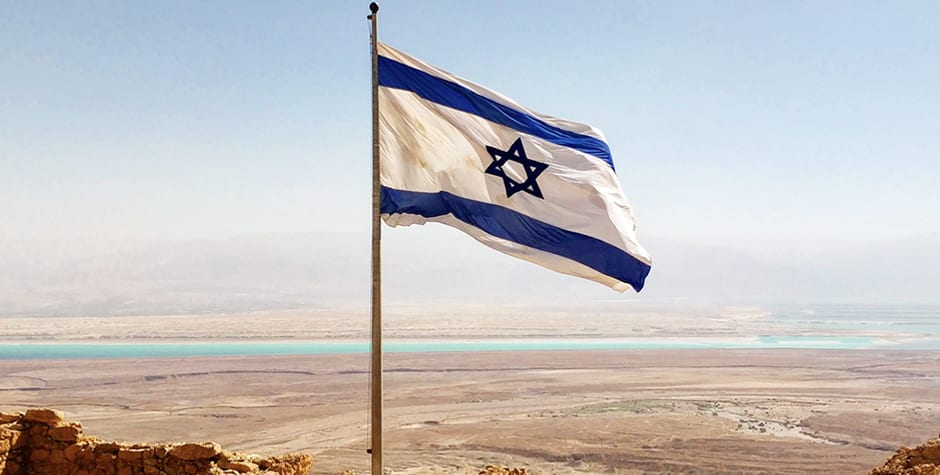Route 60: Traveling the Biblical Highway Through Israel and the Lessons We Can Learn Today
Route 60, a film I helped make along with my good friend David Friedman, former U.S. Ambassador to Israel and an Orthodox Jew, will be released in select theaters across the United States next week. Known as “the Biblical Highway,” Route 60 is a stretch of road that runs right down the spine of Israel and through the heart of the most important Biblical sites for so many religions – Christians, Jews, and Muslims alike. It was a true privilege to traverse it with Ambassador Friedman and to be able to document our journey so that we could share it with others. Our goal was to bring the incredibly rich religious history along this route to life and, even more importantly, to show people why faith continues to matter to people today.
First and foremost, Route 60 is a testament to the continued importance of faith in the modern world. So often, we hear today’s politicians, pundits, philosophers, and scientists claim that religious belief is antiquated and obsolete or that the Bible is just old, outdated nonsense. Nothing can be further from the truth, though – the wisdom contained within its pages is exceptionally relevant to our lives today.
By traveling to the places where these stories happened and walking in the footsteps of Abraham and Jesus, that wisdom really does come to life. For example, our journey took us through Jerusalem, the Holy City that David established as Israel’s capital. During our visit, Ambassador Friedman and I made a stop at the rooftop held as the place King David saw Bathsheba bathing. That passage, recorded by the prophet Samuel, is no simple tale of a king being foolish. It stands as a timeless warning to leaders who would abuse the power of their office for their own selfish gain, and we need only to remember the antics of President Clinton and the disgrace he brought to the White House to remember that the wisdom contained within the pages of the Bible remains as relevant as ever.
Our journey also made clear the continued importance of America’s friend and ally, Israel. A trip down Route 60 – which runs through Israel as well as Judea and Samaria – would likely have been impossible were it not for the stability and security provided by the Jewish nation-state. Indeed, it is Israel’s presence in the region that presents an opportunity for people of all faiths and backgrounds – Palestinians included – to live with dignity and prosper together. As a Christian, it is a great comfort to know that places like the pilgrim’s path in Jerusalem – steps that existed in the days of Pontius Pilate and were likely traversed by Christ himself – are diligently protected by the Israeli government. It was for these reasons and many more that we in the Trump Administration made sure America’s relationship with Israel was as close as it had ever been.
Our journey ended at Be’er Sheva, the Biblical site where Abraham and King Abimelech made peace. It was a fitting conclusion: Abraham is the father of not only Christianity and Judaism, but of Islam, too, and Ambassador Friedman and I both took great inspiration from the “Father of many nations” in our diplomatic approach to the Middle East, routinely emphasizing our common heritage with our Muslim partners. This approach brought historic success: When we signed the Abraham Accords, agreements that normalized Israel’s relations with its Arab neighbors, the peace Abraham achieved at Be’er Sheva echoed through the ages. Today, the Abraham Accords continue to make the prospect of even greater peace across the Middle East possible.
If there is one thing I hope viewers will take away from this film, it is that faith still matters and these places in Israel and Judea and Samaria still matter. All the locations Ambassador Friedman and I visited, from Gethsemane to Galilee, brought to life the history of our respective faiths in new and incredible ways. Our intent was to travel to these places and share a world different than the one we hear about in the news. All of us have seen the violence in places like Jenin, or the recent act of terror at Joseph’s tomb just outside Nablus; but it is also the case that in Judea and Samaria, there are Jews, Arabs, and Christians living alongside each other peacefully. For peace to be achieved in this difficult region, I believe it is essential that people of different faiths living there and all around the world understand it as a land of immense significance to Jewish, Christian, and Muslims alike. If we can recognize that, I know we will come to realize that this land must be protected and kept safe for all, rather than fought over and destroyed.
